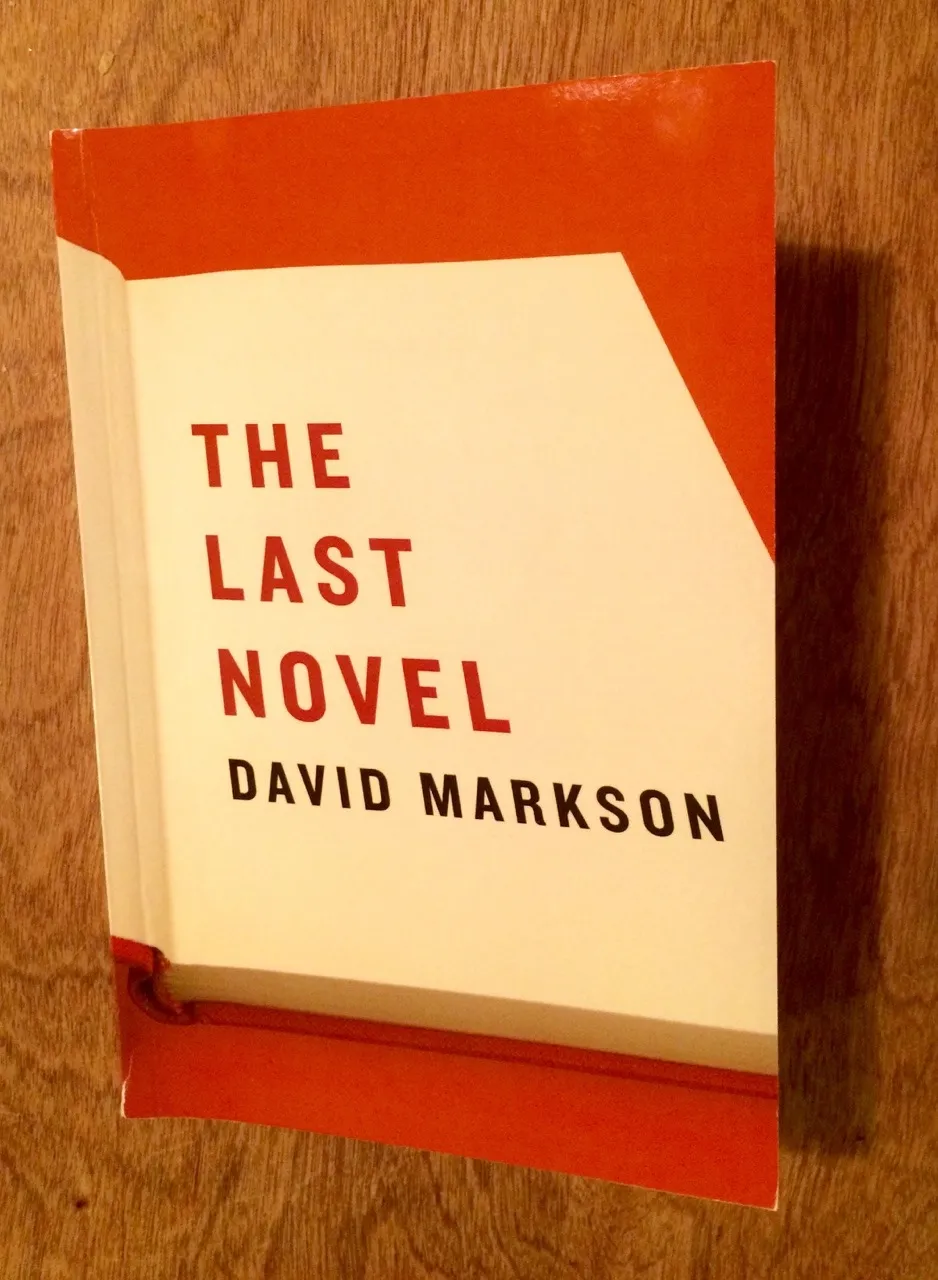David Markson the Last Novel the Fourth And

David Markson, The Last Novel
The fourth and final book, after Reader's Block, This Is Not A Novel, and Vanishing Point, in Markson's last four books of "nonlinear, discontinuous, collage-like" anti-novels.
Markson's composition method was to gather bits of trivia and stories, scribble notes on 3x5 index cards, and put them in shoebox lids. When a couple of shoebox lids were full, he'd assemble a book out of them.
As Lawrence Weiner put it, "Bits & Pieces Put Together To Present A Semblance Of A Whole."
It makes you want to break the whole back into bits and see if you can reassemble your own whole, which, when you think about it, is what reading is.
For example, here's my own little go at it, using highlighted passages from throughout the book:
The greatest kindness we can show some of the authors of our youth is not to reread them.
Said François Mauriac.
Because bookshops are among the very few places where one can spend time without spending any money, George Orwell noted, any number of practically certifiable lunatics are guaranteed to be regularly found in most of them.
The imagination will not perform until it has been flooded by a vast torrent of reading.
Announced Petronius.
You have to read fifteen hundred books in order to write one.
Flaubert put it.
Thinking with someone else's brain.
Schopenhauer called reading.
The word plagiarism—from the Latin for kidnapping.
To kidnap another writer’s brains, Martial had it.
Not a composer. A kleptomaniac.
Stravinsky called Benjamin Britten.
Victor Hugo constantly made notes about everything—and would turn aside in the middle of a conversation to scribble down something he himself had just said that he realized he might possibly later be able to use.
The name Copperfield came from a sign Dickens had noticed on a shop in a London slum.
Chuzzlewit likewise.
What would non-creative writing be?
George Steiner once casually wondered.
Looking is not as simple as it looks.
Said Ad Reinhardt.
The nature of genius is to provide idiots with ideas twenty years later.
Said Louis Aragon.
The avant-garde. A kind of research and development arm of the culture industry, the critic Thomas Crowe called it.
I skate to where the puck is going to be, not where it's been.
Said Wayne Gretzky.
Ancora imparo, said Michelangelo at eighty-seven.
Still, I’m learning.
If you value my work, please, do not knock. Requested a notice on Herman Hesse's door in Ticino.
I would rather have a drop of luck that a barrel of brains.
Allegedly said Diogenes.
He who writes for fools will always find a large audience.
Said Schopenhauer.
What I get, reading all four of these books, is a sense of how bone-crushing the lives of many artists were, how cruel and stupid many of them were, how cruel and stupid life was to many of them, but also just the endless number of ways of going about being an artist, how every position, every way of being, has an opposite, a counterpoint, and the only certainty, as Markson points out time and time again, is death.
(It's more cheerful than it sounds?)
Filed under: David Markson